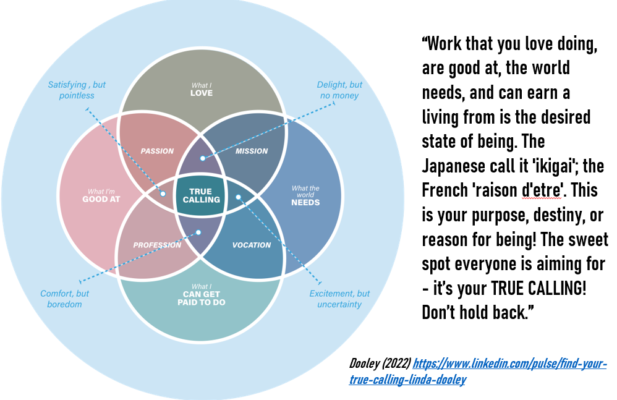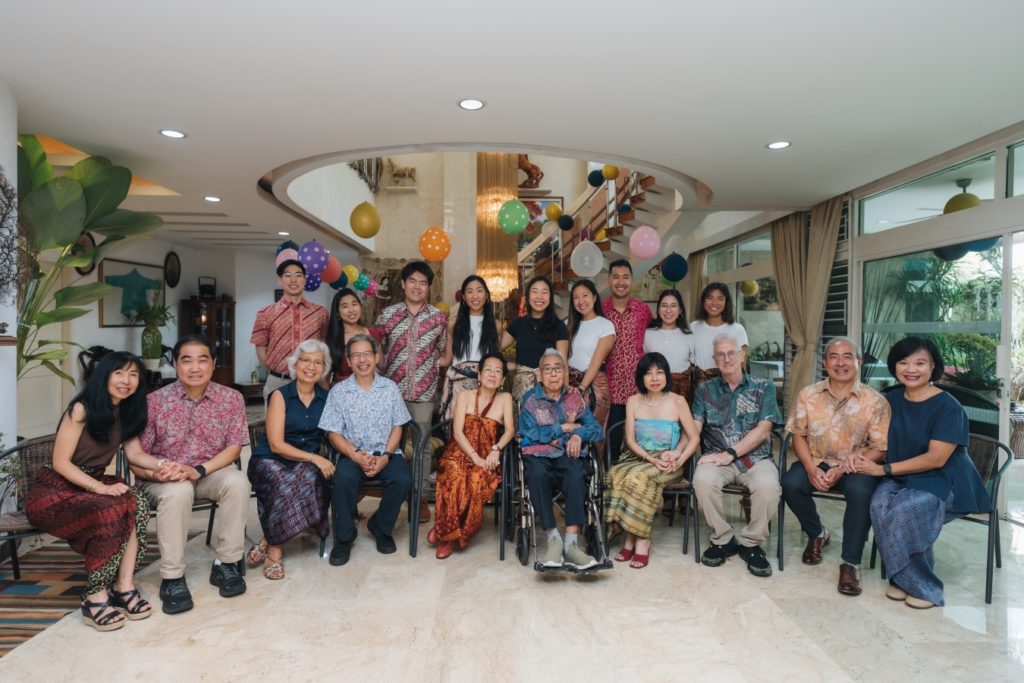
I remember the question being asked so often as I was approaching college graduation. What are you going to do next? Let’s think about what kind of job you might be called to. Figure out your calling, and you’ll find a job that you love! There’s so much messaging out there about how important it is to identify your calling and pursue it in order to have a happy life.
But that’s not always how it goes, is it? Despite the positive undertones of “calling”, there’s a growing understanding that calling can have negative effects, especially when people perceive a strong calling but find themselves in jobs where they are unable to “live out” their calling (e.g., in tough industries such as entertainment).
This is what inspired our most recent publication — one of the favorite projects to work on, and currently the publication I’m most proud of! We theorized a new way of thinking about calling as dynamic in “shape” across three facets: scope, time proximity, and duration. You can access our paper for FREE on open access in the Journal of Occupational and Organizational Psychology here!
In brief, we proposed that callings can differ by:
1. Scope: calling can be narrow (e.g., become an I-O psychology professor at a large R1) or broad (e.g., teach about psychology)
2. Time Proximity: calling can be immediate (e.g., become a high school teacher immediately after graduating from college) or distal (e.g., become a high school teacher several years or even a decade after graduating from college)
3. Duration: calling can be long-term (e.g., be a high school teacher for an entire career) or short-term (e.g., be a high school teacher for just a few years)
Why does this matter? Well, we suspect that most people are implicitly taught to think about calling as narrow, immediate, and long-term. Visually, it would look like this:

But that’s exactly the type of mentality that might lead to the some of the negative effects that we’ve seen in research and in practice so far. Imagine feeling like you’re called to become an I-O psychology professor at a large R1, and you want to get there as soon as possible, and you expect to stay in that profession for your entire career. The reality of the academic job market (don’t get me going there — I can write a whole separate post about problems here) is that those specific jobs are hard to come by, take a lot of time to get to (most faculty go through several visiting positions first), and may not always last a full career (our field is seeing a large outflux of faculty leaving their positions for private industry).
Instead, we suggest that your calling might be broader, more distal, or shorter-term. Imagine a calling that looks like this:

It’ll take some patience, but perhaps you’ll be more satisfied and happier if you know that your calling is to teach about psychology in general (it could be in night classes, casually with friends, serving your local non-profit, or any number of “teaching” outlets), and you’re patient to wait until later in life to pursue that calling. It may not even last that long — your calling might change after a few years.
We hope that by embracing this type of flexibility in what calling might look like, and how it changes over time, can help people everywhere as they ask the important question of “What is my calling?” To be clear, we’re not rejecting the question — it’s an important one that everyone should ask! — but we’re proposing that we think about the question differently.
Interested in next steps? We’re planning some empirical follow-up studies to examine this further, and we’d love for you to join us!
In other news, it’s mid-July, and this summer has been an amalgamation of full-time work, juggling research papers that are under revision, pushing forward on the dissertation, and some personal travel. We have several leadership papers that will (hopefully) be coming out in the next few months, so stay tuned for that! And the dissertation is going… I hope to finish analysis in the next few weeks. The preliminary analyses show that the means are trending in the hypothesized direction, which is good!
Finally, here’s a quick photo from the two weeks that my family and I just spent in Indonesia for my grandfather-in-law’s 90th birthday:

Thanks for reading, and as always, if you find this interesting, please subscribe here!
Steven Zhou
Comments (0)